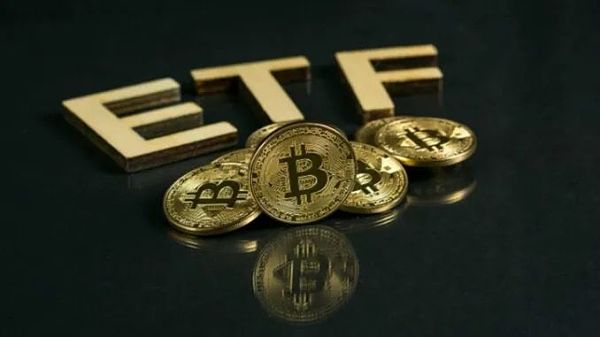Author: Bitke; Source: Bitkoala Kaola Finance
As expected, the U.S. Securities and Exchange Commission A decision will be made to "approve" or "reject" the spot Bitcoin ETF next Wednesday, January 10. Although many crypto community users have high expectations for this approval, there are still some different voices in the crypto market. If we assume the “worst case scenario” and the SEC rejects a spot Bitcoin ETF, the financial giants who submitted the application likely have another option: Hong Kong.
Koala Finance will make an in-depth analysis in this article.

What will be the consequences if the spot Bitcoin ETF is not approved?
According to the latest news today on January 6, a number of spot Bitcoin ETF issuers have stated that they expect to issue funds later next Tuesday or Wednesday. Receive final approval of S-1 petition. The U.S. Securities and Exchange Commission has asked three Bitcoin ETF issuers to make "minor" changes, with some asset managers expected to amend their filings to disclose market maker fees or identities for their ETFs. People familiar with the matter said that relevant content updates will be due at 8 a.m. Eastern Time next Monday (around 9 p.m. Beijing time on January 10) and may be announced on the same day. A spokesman for the U.S. Securities and Exchange Commission said that the agency does not accept individual submissions. File comments. It is reported that a source from one of the issuers of spot Bitcoin ETFs said that the U.S. Securities and Exchange Commission’s vote on the 19b-4 rule change to approve the issuance of spot Bitcoin ETFs is scheduled for next Wednesday, January 10.
However, technically the SEC can still reject the product. After all, the regulator has rejected such products for the past decade, saying that due to the Coins are largely globalized and decentralized, making them more susceptible to market manipulation.
In fact, some within the crypto community have already voiced opposition to spot Bitcoin ETFs. For example, the non-profit organization Better Markets has continuously sent letters to the U.S. Securities and Exchange Commission, Expressed opposition to the approval of a Bitcoin spot ETF, claiming that if the SEC approved such a product it would be a historic mistake and would cause huge losses to investors. It is reported that Dennis Kelleher, CEO of Better Markets, is a representative figure who opposes cryptocurrencies. He has been critical of the virtual asset industry, calling it an "essentially predatory business model." ·While working together on Biden's presidential transition team, he established a close relationship with current SEC Chairman Gary Gensler. Industry analysts say that their relationship may become a variable in whether the Bitcoin spot ETF can be passed.
If the spot Bitcoin ETF is not approved for any reason, the most direct result is litigation, which means that the spot Bitcoin ETF applicants, including Baile Financial institutions such as Germany and Ark Invest will sue the U.S. Securities and Exchange Commission, and the U.S. Securities and Exchange Commission may lose the lawsuit. Therefore, based on the previous gray silence, the court may once again rule that its decision is "arbitrary and capricious." However, at this stage, the US SEC has no legitimate reason to reject these applications. In the Grayscale case, it had given all possible reasons to reject the asset management company's application, but still lost the case.
However, even if a lawsuit is filed against the U.S. Securities and Exchange Commission, investors will have to face huge losses in the face of a long trial time, including the regulatory preparation for the preliminary application. costs, and subsequent potential loss of investment income, etc. So, if the spot Bitcoin ETF fails to be approved, do investors have other options?
The answer is yes, that is Hong Kong.

Hong Kong may be the best choice for spot Bitcoin ETF
At the end of 2023, the Hong Kong Securities and Futures Commission announced that it was ready to accept The approval application for funds such as virtual asset spot ETFs makes Hong Kong expected to become the first market in Asia to accept the listing of virtual asset spot ETFs such as Bitcoin and Ethereum.
The Hong Kong Exchange also expressed support for the CSRC’s regulatory stance. Luo Boren, head of securities product development at the Hong Kong Exchange, said that the CSRC’s announcement means Hong Kong will become the first market in Asia to allow the listing of virtual asset spot ETFs, strengthening Hong Kong’s position as the region’s leading digital asset center and supporting Hong Kong’s continued development as Asia’s premier ETF market. Luo Boren also added that the Hong Kong Stock Exchange is ready to seize the opportunities brought by thematic investment and will work closely with issuers and various stakeholders to smoothly introduce such new products into the Hong Kong ETF market. HKEX is committed to further enhancing Hong Kong’s attractiveness and competitiveness as an international financial center and bringing more diversified choices to the market and investors.
In fact, the Hong Kong Securities Regulatory Commission has clearer regulatory measures for virtual asset spot ETFs than the U.S. Securities and Exchange Commission. Koala Finance lists the following four points of regulation: Advantages:
1. Spot virtual asset ETFs approved by the Hong Kong Securities Regulatory Commission allow subscription and redemption in physical and cash forms.
2. In terms of cash subscriptions and redemptions, spot virtual asset ETFs recognized by the Hong Kong Securities Regulatory Commission are expected to be allowed through virtual asset trading platforms licensed by the Securities and Futures Commission ( (within the platform or outside the platform) to acquire and dispose of spot virtual assets;
3. For physical subscriptions, participating dealers (PD) should allocate funds that may be held locally or overseas. Some spot virtual assets are transferred to the custody account of a spot virtual asset ETF approved by the Securities Regulatory Commission on a virtual asset trading platform or authorized institution (or its subsidiary established locally) on a virtual asset trading platform licensed by the Securities Regulatory Commission (or its subsidiary). For physical exchange, the process is vice versa;
4. For ETFs that invest in spot virtual assets, their major shareholders should be corporations licensed or registered by the Securities Regulatory Commission Institutions are also subject to additional terms and conditions imposed by the licensing authority, if applicable.
For details, please refer to: "Koala comprehensively analyzes the impact of allowing virtual asset spot ETFs in Hong Kong"
Summary
Although the Chicago Mercantile Exchange has long listed Bitcoin futures ETF, Hong Kong has also launched CSOP Futures ETF, but at this stage, spot Bitcoin ETF is the product that the entire cryptocurrency market is most concerned about, because most public funds are not very involved in futures, and Bitcoin cannot be added to the investment list. Options for high-risk assets, but spot ETFs are different. Whether they are public or private funds, spot ETFs are conventional investment targets.
If the U.S. market does not liberalize spot Bitcoin ETFs, Hong Kong is definitely an excellent landing choice. We know that the market size of the Hong Kong Stock Exchange is nearly US$5 trillion. , the AUM of many large-scale asset management institutions in Hong Kong reaches hundreds of billions of dollars. Under the background of the Hong Kong Securities Regulatory Commission’s efforts to develop Web3, investing in Bitcoin spot ETFs will become an important option for asset management institutions, and tens of billions of dollars of funds may one after another Flood into it.
It is expected that hundreds of billions of dollars in global funds will be injected into spot Bitcoin ETFs in a few years. The current BTC price is basically hovering in the range of $45,000, and the market is circulating The market is still very limited. If the spot Bitcoin ETF can be launched in Hong Kong, it may further promote the accelerated development of cryptocurrency and even the entire Web3 market.
 JinseFinance
JinseFinance
 JinseFinance
JinseFinance Huang Bo
Huang Bo Miyuki
Miyuki JinseFinance
JinseFinance Edmund
Edmund JinseFinance
JinseFinance Bitcoinist
Bitcoinist Cointelegraph
Cointelegraph Nulltx
Nulltx Nulltx
Nulltx